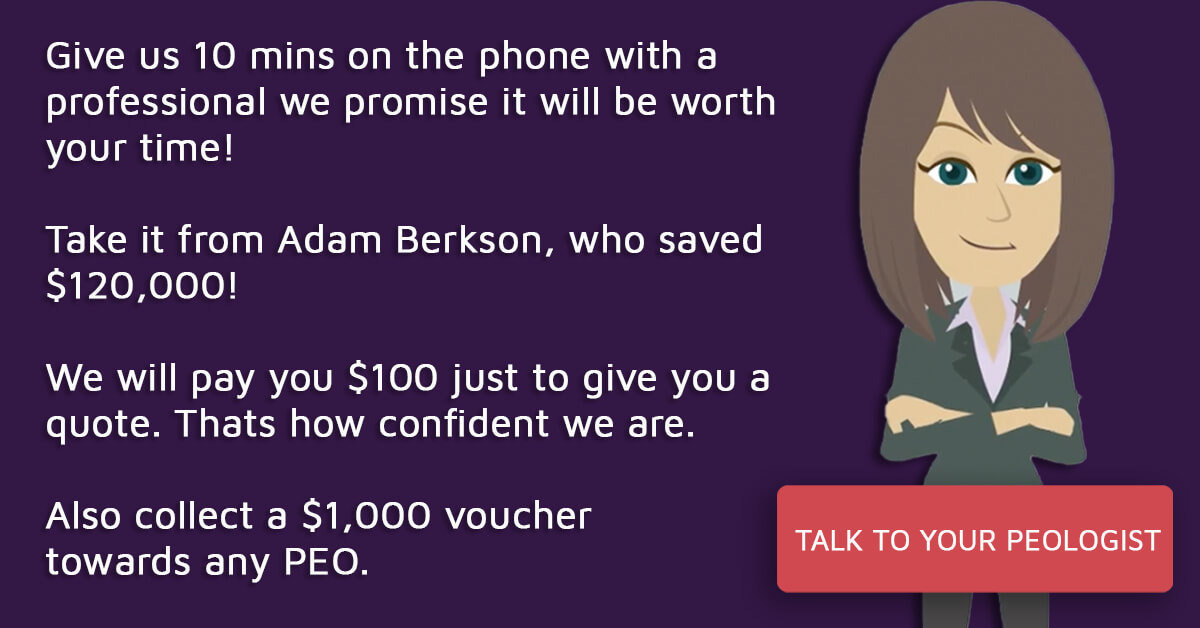Let’s compare the process between using a broker and you going directly to a PEO without a broker.
Calling PEO’s Without a Broker
– Look online and start doing research.
– Get 50 calls because they sell your lead information to other companies.
– Talk to 5 of them ’til you can’t take it anymore and you’re ready to rip your hair out.
– Research some more and decide to call some directly.
– You finally think you decided on a few you want to get quotes from.
– You really don’t know if out of the 700 you have the right one for you, and, how could you? Unless you’ve been doing it for years and have the experience to know who’s who they all sound the same.
– You start to gather all the information and fill out their different forms.
– They ALL call you up with questions – mostly the same questions
– Then most call up with more questions and by this point, you are regretting even getting quotes, but in the end, you’re hoping they will great and worth the time.
– Some then want to give you demos before you get rates, some want to meet and show the rates and then give you demos.
– Most of the demos are done poorly – either too detailed or too sales-y and leave you confused as to what exactly you’re being told.
– Even though you saw the demo you don’t still know if it works well – but they look and sound good, and this is how they trap you.
– Ahh, finally! You finally start to get some proposals and hopefully they look good… but they all start to look the same.
– Then you realize the unfortunate truth – you may be smart but honestly, you don’t know what’s missing or the issues their salespeople will not tell you. You only know what they tell you and you’re never made aware of what they don’t.
– They go over all of the services and modules.
– Integrations most aren’t really fully integrated for all their modules.
– Contracts – e.g. do they scoop, termination fees, nickel and dime costs, etc.
– Medical – oh no, now you have compared everyone’s plans and they are almost never apples to apples. It can get confusing, especially when you aren’t completely sure what you’re looking at or being told.
– After many long, agonizing hours you think you narrowed it down.
– You feel confident and secure in your decision, figuring you have done your due diligence.
– You do some more final negotiations and pick one (whew, even reading about it takes forever doesn’t it?)
– Some of this is an exaggeration, but the reality is that negotiations with a PEO is like buying a carpet in turkey – you think you got a great deal, but you will never know what you really should have paid or got thrown in. You really need to have experience with the industry to know what the right choices are.
– Then it is time for implementation (finally!) – and you figure they know what they are doing, so you’re just going to leave it to the pros.
– How do you make sure you get the A-team? You don’t have the clout for this or future management access to solve problems, you don’t know the right people, you don’t have the experience picking the best of the best for your clients – so how can you know you made a good choice?
– And you want to know the worst part?
– AFTER ALL THAT YOU WILL NOT KNOW IF YOU PICKED THE WRONG ONE OR PAID TOO MUCH TILL IT IS TOO LATE!
Using a PEO Broker
What You Get:
– We have one universal form, eliminating the hassle of filling out multiple forms.
– We consolidate and disseminate all information from a single professional point of contact.
– We do apples to apple comparisons, ensuring you always understand exactly what it is that you’re getting.
– We may get you rate guarantees, ensuring what you pay now is what you pay forever.
– We have more negotiation power than you, allowing us to get you:
- Lower set up fees.
- Lower medical rates.
- Lower WC rates.
- Lower admin.
Benefits of using a PEO Broker:
– They have the experience to know the right PEO’s for you and the wrong ones.
– They are objective & professional.
– They know what you may not know – and that’s why they’re here to help! They know a lot about PEOs, it’s all they do.
– You meet with a single experienced underwriter who is able to consolidate all information in an easy to understand format.
– They will tell you all the modules you can and should get thrown in, ensuring you get the best you can get for the least.
You Also Get:
– Ongoing Assistance.
– The right team and Reps who have the experience to know what they’re doing.
– No fees, no obligations.
– They are less expensive than going to the expensive direct rep sales force.
IN THE END, YOU GET THE RIGHT PEOPLE, YOU SAVE TIME, YOU GET MORE MODULES, LOWER SET UP FEES, LOWER ADMIN FEES, LOWER WC FEES – AND YOU SAVE TIME, MONEY AND HEADACHES!


